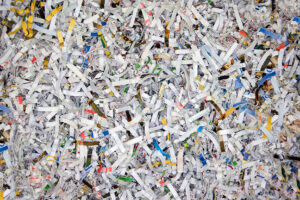For healthcare providers, safety and cost-effectiveness are top priorities when it comes to managing medical sharps. Sharps containers are essential for the safe disposal of needles, syringes, and other sharp objects. But where should healthcare providers buy their sharps containers, and how can they save on these crucial safety products? In this article, we will explore strategies for procuring sharps containers efficiently while maintaining budget-conscious practices.
Where to Buy Sharps Containers
Healthcare providers have several options when it comes to purchasing sharps containers:
- Medical Supply Distributors: Established medical supply distributors often carry a wide range of sharps containers. These suppliers offer convenience and a wide selection of sizes and types to suit your facility’s needs.
- Online Retailers: Many online retailers specialize in medical supplies, including sharps containers. Purchasing online can offer cost savings and the convenience of comparing different products and prices.
- Manufacturer Direct: Some healthcare providers choose to buy sharps containers directly from manufacturers. This can sometimes lead to cost savings, especially when purchasing in bulk.
- Group Purchasing Organizations (GPOs): Joining a GPO can provide healthcare facilities with access to discounted rates on a variety of medical supplies, including sharps containers.
Saving on Sharps Containers
To save on sharps containers while maintaining safety and quality, consider these strategies:
- Buy in Bulk: Purchasing sharps containers in bulk often comes with cost savings. Assess your facility’s needs and buy in larger quantities to take advantage of volume discounts.
- Explore Generic Brands: Generic or store-brand sharps containers can be just as safe and effective as name-brand options but may come at a lower cost.
- Consider Recycling Programs: Some manufacturers and suppliers offer recycling programs where you can return used containers and receive new ones at a reduced cost. This can be both cost-effective and environmentally friendly.
- Group Purchasing: Joining a GPO can provide access to negotiated discounts on sharps containers and other medical supplies. GPOs leverage the purchasing power of multiple healthcare facilities to secure lower prices.
- Evaluate Container Size: Choose container sizes that align with your facility’s waste generation. Avoid over-purchasing larger containers that may lead to unnecessary expenses.
- Reusable vs. Single-Use: Evaluate whether reusable sharps containers, which can be emptied and sterilized, are more cost-effective in the long run compared to single-use options.
- Online Price Comparison: When purchasing online, compare prices from multiple retailers to find the best deal. Consider shipping costs when comparing online prices.
- Contract Negotiation: If you have a long-term contract with a supplier, consider renegotiating the terms to secure more favorable pricing.
Conclusion
Maintaining a safe and cost-effective healthcare environment is essential for healthcare providers. When it comes to procuring sharps containers, exploring different purchasing options, buying in bulk, considering generic brands, and participating in cost-saving programs can help healthcare facilities save on their budget while ensuring the safe disposal of medical sharps. Prioritizing safety while implementing cost-effective procurement strategies is a win-win for healthcare providers, enabling them to provide high-quality care while maintaining financial responsibility.










